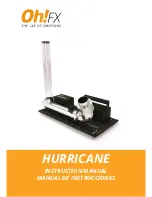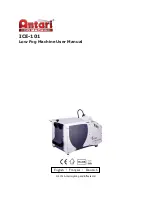
SEWING
Sewing
A
B
D
C
E
3.5
3-5
2.5
A. Stitch
B. Presser foot
C. Stitch length in mm
D. Stitch width in mm
E. Thread tension
Next to each stitch or sewing technique described in this
section of the manual is a chart showing the recommended
settings and presser foot. See sample of the chart to the right.
The recommended settings are also shown on the display, but
might need adjustment to fit a special technique.
Note: Some fabrics have a lot of excess dye which can cause
discoloration on other fabric but also on your sewing machine.
This discoloring may be very difficult or impossible to remove.
Fleece and denim fabric in especially red and blue often
contain a lot of excess dye. If you suspect that your fabric/
ready-to-wear garment contains a lot of excess dye, always
pre-wash it before sewing to avoid the discoloring.
Note: For best sewing result, use the same thread on top and
bobbin. If sewing with specialty/decorative threads, use
regular sewing thread in the bobbin.
Start to Sew – Straight Stitch
3.5
2.0–4.0
3–5
Set up for straight stitch
A
B
Set your machine for straight stitch (see chart to the right).
Raise the presser foot and position the fabric under it, next to a
seam allowance guide line on the needle plate. On the bobbin
cover there is a 1/4" (6mm) guide line.
Place the top thread underneath the presser foot.
Lower the needle to the point where you want to start. Bring
the threads toward the back and lower the presser foot. Press
the foot control. Gently guide the fabric along the seam guide
letting the machine feed the fabric (A). If the bobbin thread
isn’t pulled up, it will be automatically as you start to sew.
Note: You can also start and stop your machine with the Start/
Stop button.
To secure the beginning of a seam, press and hold the reverse
button. Sew a few reverse stitches. Release the reverse button
and the machine will sew forward again (B).
Note: You can also use the tie-off button to secure the stitch.
Press the tie-off button before you start sewing, the machine
sews three tie-off stitches and stops. Then continue sewing.
Change Needle Position
Some sewing is done more easily by changing the needle
position, e.g., topstitching a collar or sewing in a zipper. The
needle position is adjusted with the Stitch Width button (see
24 – Sewing
English
Summary of Contents for SUPERA
Page 1: ...MANUEL D INSTRUCTION MANUAL DE INSTRUCCIONES INSTRUCTION MANUAL ΕΓΧΕΙΡΙΔΙΟ ΟΔΗΓΙΏΝ SUPERA ...
Page 47: ...MANUAL DE INSTRUCCIONES SUPERA ...
Page 90: ......
Page 93: ...INSTRUCTION MANUAL SUPERA ...
Page 137: ...ΕΓΧΕΙΡΊΔΙΟ ΟΔΗΓΙΏΝ SUPERA ...
Page 142: ......
Page 186: ......
















































